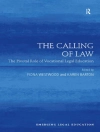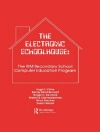‘Learning across generations in Europe: Contemporary issues in older adult education constitutes an important book in the emergent field of study of older adult learning. The book gives a clear and wide overview on the different concepts, ideas, and meanings, related to older adults’ education, learning and intergenerational learning through strong theoretical standpoints, empirical research, and policy directions. The field of older adult education has expanded immensely in recent years since it raised questions that are connected to a rapidly ageing society in very turbulent times of economic and social changes in Europe. This book provides the basis for an in-depth analysis of the understandings and interpretations of education and learning in later-life, rethinking the development of different approaches for education of older adults, as well as diverse research and evaluation of different forms of older adults’ education and learning. It brings together both orthodox approaches to educational gerontology and older adult learning on important emerging issues faced by educators around the globe. The chapters address the contemporary differentiated discussion on diverse phenomena labelled ranging from intergenerational learning to older men learning, providing robust impulses for the development of further theoretical and empirical research on older adult and intergenerational learning. It is the editors’ intention that this collection of papers acts as a persuasive argument for formal and non-formal learning agencies to open more doors for older adults. Bernhard Schmidt-Hertha Ph.D. is Full Professor of educational science with focus on continuing education and further vocational training at Institute of Education, University of Tuebingen. His research and writings address the topics of adult education, intergenerational learning, informal adult learning, and higher education Sabina Jelenc Krašovec Ph.D. is Associate Professor of adult education withinthe Department of Educational Sciences, Faculty of Arts, University of Ljubljana. Her research and writings focus on the education of vulnerable adults, and more recently, on older adult learning in the community and non-formal contexts. Marvin Formosa Ph.D. is co-ordinator of the Gerontology Unit, Faculty for Social Wellbeing, University of Malta. Recent publications include Lifelong Learning in Later Life: A Handbook on Older Adult Learning (with Brian Findsen, 2011) and Population Ageing in Malta: Multidisciplinary Perspectives (with Charles Scerri, 2015). ‘
Table des matières
‘Foreword by Brian Findsen; Acknowledgements; The European Society for Research on the Education of Adults (ESREA); Introduction: Older Adult Education and Intergenerational Learning; THEORY AND POLICY ISSUES; Lifelong Learning in Later Life: Policies and Practices; Older Men’s Learning and Conviviality; Education and Empowerment in Later Life; E-learning: An Opportunity for Older Persons; Older Adults as Active Learners in the Community; PARTICIPATION AND PROGRAMMES; Conceptual Basis for Learning: Frameworks for Older Adult Learning; Temporary Exit from Employment: Possibilities for Lifelong Learning in Early Retirement; Lifelong Learning and Skills Development in the Context of Innovation Performance: An International Comparison; Learning for Disadvantaged Seniors: Issues of Outreach, Access Provision and Delivery; Voluntary Work as the Seniors’ Space for Learning; Different Concepts of Generation and Their Impact on Intergenerational Learning; What Grows in Gardens? Perspectives on Intergenerational Learning in Urban Spaces; Intergenerational Learning in Different Contexts; Older Adults as Active Members of Non-Governmental Organisations; Intergenerational Learning and Social Capital; Conclusion: Policy Futures in Older Adult Education and Intergenerational Learning; About the Contributors. ‘












